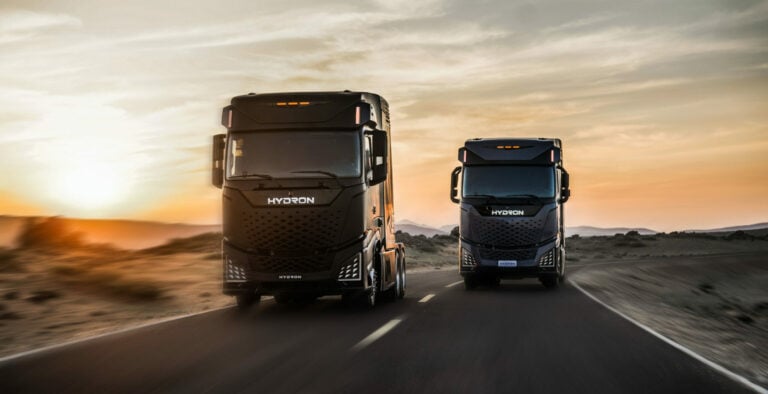
One of the discussions Jason Wallace, head of North American operations for transportation startup Hydron Inc., has with fleet operators is where they should invest their money.
They often want to invest in new technology, but are not sure if they should put their funds into autonomous vehicles or clean propulsion, he said.
With Hydron vehicles they can do both at the same time, Wallace said.
“We have autonomous-ready vehicles that are ready to turn on the autonomy when the software is available and will be running on a reliable hydrogen fuel cell that is ideally suited for long-haul applications,” he said.
Hydron was started this year by Mo Chen, the co-founder of San Diego-based TuSimple, a company whose autonomous driving technology is used in long-haul trucks.
In a release about the company’s founding, Chen said that the path to commercializing autonomous vehicles requires the integration of both hardware and software.
The biggest challenge in bringing autonomous driving to the market at scale is not software development, but access to reliable mass-production hardware, Chen said in a statement. “With Hydron, we will be able to provide automotive-grade hardware specifically for autonomous networks,” he said in a statement. The trucks that Hydron will eventually build come with an array of sensors, cameras, radar and lidar. A number of redundancies in the steering and braking systems are also part of the process.
“They have very powerful GPUs (graphics processing units) in them to be able to run the large AI (artificial intelligence)-based software that these AI companies are developing today,” Wallace said.
Hydron is partnering with a handful of Tier 1suppliers to develop the truck and make sure that it meets specifications set by these companies.
“We are working with the software developers to understand their needs and their hardware specifications and making sure we have that all baked in before we go to a mass-production format,” Wallace said.
The company is currently exploring a location for its manufacturing facility, in either the U.S. or Mexico. The U.S. is the number one market that the company is “laser focused” on right now, Wallace said.
“We have to be here, and we’ve got to be close to our customers,” he said. “So, it’s probably between the U.S. and Mexico, but we are not ready to name a specific city yet.”
Hydron has two working prototypes that it is currently testing on roads in closed environments and in some open settings. It expects to have its first vehicles in the hands of customers in late 2024.
